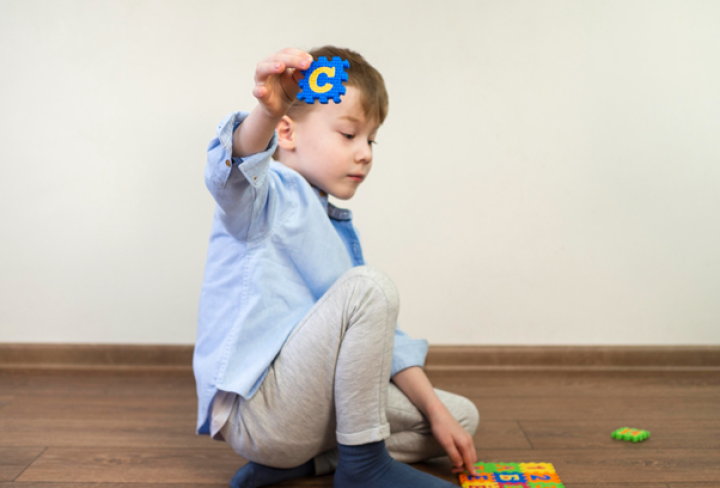Introduction:
When it comes to child development, it’s essential to be aware of potential delays and take appropriate action. While minor delays are often temporary and not cause for alarm, prolonged delays may indicate underlying issues. This article will highlight warning signs of developmental delays in children. If you notice these signs, it’s crucial to consult a pediatrician for further evaluation and support. Early intervention can significantly impact your child’s development and overall well-being.
Physical Signs of Developmental Delay:
- Impaired vision or hearing abilities.
- Inability to track moving objects with their eyes.
- Frequent crossing of eyes.
- Failure to notice their hands by 2 months.
- Inability to hold their head up by 3-4 months.
- Lack of grasping, reaching, or bringing objects to the mouth by 4 months.
- Delay in rolling over by 5 months.
- Muscle stiffness or floppiness hindering limb movement.
- Awkward posture or a limp body.
- Inability to sit well by 8 months.
- Absence of crawling by 9 months.
- Inability to stand up with assistance by 12 months.
Behavioral, Emotional, Social, and Communication Signs of Developmental Delay:
- Persistent crying for more than three hours a day, even after comfort and feeding, particularly after 3-4 months.
- Lack of curiosity about their surroundings.
- Absence of recognition or fear of unfamiliar faces.
- No laughing or squealing for 6 months.
- Failure to respond to their own name by 9 months.
- Inability to make gestures like waving or pointing by 12 months.
- Lack of smiling at people.
- Disinterest in interactive games such as peek-a-boo by 9 months.
- Difficulty being cradled, cuddled, or comforted at night by 5 months.
- Inability to babble or engage in back-and-forth exchange of sounds or facial expressions by 9 months.
- No response to loud noises.
- Failure to respond to simple words such as ‘no’ or ‘bye-bye.’
Understanding Developmental Milestones and Concerns:
It is natural for parents to feel concerned when their child’s development doesn’t align with expected milestones or those of other children. However, it’s important to remember that every child is unique and develops at their own pace. Milestones are achieved at different rates, and some children may even skip certain milestones entirely. While it’s uncommon for a child to skip two consecutive milestones, variations in development are normal.
In many cases, mild delays in development are attributed to environmental factors rather than medical problems. Creating a stimulating environment for your child can often address these delays. However, it is crucial to remain cautious and proactive in identifying any potential issues as early as possible. Seeking professional guidance will provide clarity and support for your child’s optimal growth.
Consulting a Pediatrician for Developmental Concerns:
If you notice any signs of developmental delay in your child, it is recommended to consult a pediatrician or healthcare provider. A developmental screening conducted by the pediatrician can help assess your child’s progress and identify any areas of concern. Early diagnosis of developmental delays enables timely intervention and improves outcomes for children.
Conclusion:
Understanding the warning signs of developmental delay empowers parents to take appropriate action when necessary. Remember that each child’s development is unique, and variances in milestones are normal. However, if you observe prolonged delays or multiple warning signs, seeking professional guidance is crucial. Early intervention and support can significantly impact your child’s development and set them on a path to reach their full potential. Stay proactive and work closely with your pediatrician to ensure your child receives the necessary care and support they need.

